- Home
- Chris Ryan
Masters of War
Masters of War Read online
Also by Chris Ryan
Non-fiction
The One That Got Away
Chris Ryan’s SAS Fitness Book
Chris Ryan’s Ultimate Survival Guide
Fight to Win
Fiction
Stand By, Stand By
Zero Option
The Kremlin Device
Tenth Man Down
Hit List
The Watchman
Land of Fire
Greed
The Increment
Blackout
Ultimate Weapon
Strike Back
Firefight
Who Dares Wins
The Kill Zone
Killing for the Company
Osama
Chris Ryan Extreme: Hard Target
Mission 1: Redeemer
Mission 2: The Rock
Mission 3: Die Trying
Mission 4: Fallout
Chris Ryan Extreme: Night Strike
Mission 1: Avenger
Mission 2: Armed and Dangerous
Mission 3: The Enemy
Mission 4: Lone Wolf
Chris Ryan Extreme: Most Wanted
Mission 1: Protector
Mission 2: The Specialist
Mission 3: Hard to Kill
Mission 4: The Feared
Masters of War
Chris Ryan
www.hodder.co.uk
First published in Great Britain in 2013 by Coronet
An imprint of Hodder & Stoughton
An Hachette UK company
4
Copyright © Chris Ryan 2013
The right of Chris Ryan to be identified as the Author of the Work
has been asserted by him in accordance with the Copyright,
Designs and Patents Act 1988.
All rights reserved. No part of this publication may be reproduced,
stored in a retrieval system, or transmitted, in any form or by any
means without the prior written permission of the publisher, nor be
otherwise circulated in any form of binding or cover other than that
in which it is published and without a similar condition being
imposed on the subsequent purchaser.
All characters in this publication are fictitious and any resemblance
to real persons, living or dead is purely coincidental.
A CIP catalogue record for this title is available from the British Library
ISBN 978 1 444 70993 3
Hodder & Stoughton Ltd
338 Euston Road
London NW1 3BH
www.hodder.co.uk
Author’s note
On Thursday, 31 January 1991, a week after the ill-fated Bravo Two Zero patrol had been compromised, I crossed the Iraqi border into Syria. I was the only member of the unit to escape capture alive, but I was in a bad way. I’d been on the run for seven days and nights. I hadn’t eaten for six days, or drunk any water for three. My toenails had fallen off and my blistered feet had become infected and were oozing pus. I’d been exposed to nuclear waste and I was hallucinating. But at least, here in Syria, I was safe.
Or so I thought.
The first Syrian people I encountered were villagers living so simply that they were cooking breakfast on a fire outside their little house of whitewashed stone. They gave me cool water. Without their kindness I doubt I could have survived much longer.
We did not speak each other’s language, but I managed to make them understand that I needed to get to the nearest town. A young man helped me get there, but in the hours that followed I saw a very different side to life in Syria. I had to escape an angry mob who seemed determined to kill me. I found myself in the custody of three low-ranking Syrian police officers who performed a mock execution on me. Having covered about two hundred miles on foot in Iraq, I crossed most of Syria by car before reaching the capital, Damascus. There I ended up in the headquarters of the feared Mukhabarat secret police. The very name was enough to terrify the ordinary citizens of Syria, as the Mukhabarat’s tortures were notoriously cruel and they had a nasty habit of ‘disappearing’ anyone who displeased them.
Syria was a complex, dangerous place for me back in 1991. But now, more than twenty years on, one thing strikes me: it was not nearly so dangerous then as it is now. I got out alive. Tens of thousands of victims of the present Syrian civil war haven’t been so lucky.
The story that follows is drawn from experience, and from first-hand knowledge of a country which, as I write these words, has become one of the most dangerous and war-torn places on earth. Some of it might make uncomfortable reading. I make no apology for that. Conflict is not a glamorous business. It’s ugly and violent, and those who suffer the worst are not the politicians, for whom death tolls are little more than statistics. They are the ordinary people, stuck in the middle, and the soldiers sent to do the bidding of the masters of war.
Chris Ryan
London, 2013
In time of war, when truth is so precious, it must be attended by a bodyguard of lies.
Winston Churchill
CONTENTS
PROLOGUE
TWENTY-THREE YEARS LATER
ONE
TWO
THREE
FOUR
FIVE
SIX
SEVEN
EIGHT
NINE
TEN
ELEVEN
TWELVE
THIRTEEN
FOURTEEN
FIFTEEN
SIXTEEN
SEVENTEEN
EIGHTEEN
NINETEEN
TWENTY
TWENTY-ONE
TWENTY-TWO
TWENTY-THREE
TWENTY-FOUR
TWENTY-FIVE
TWENTY-SIX
TWENTY-SEVEN
EPILOGUE
PROLOGUE
The maternity ward, the Ulster Hospital, Dundonald, Northern Ireland. 1989.
If Susan Black had not been quite so brave, she might have got away with it. But bravery is always a gamble. You never know how it will turn out.
She lay in a hospital bed, propped up by pillows, her pale face exhausted. It was a plain room, about ten metres by ten, basic but not unpleasant. There was a blood-pressure machine to Susan’s right and, on the wall behind the bedside table on her left, a laminated poster. It showed a suckling baby and stated: ‘Breast is Best.’ At the end of the bed was an empty cot. Susan softly hummed ‘Rock-a-bye Baby’ as she cradled her warmly wrapped newborn in the crook of her right arm. The little boy’s few wisps of hair were matted with dried amniotic fluid. It was a bright spring morning, and the smell of newly mown grass wafted in through the open ground-floor window, where a lazy bee buzzed a counterpoint to Susan’s humming. She looked over to the corner of the hospital room. Her husband Simon was there, cross-legged on the floor with their eldest, Kyle. The five-year-old was colouring – the excitement of his baby brother’s arrival had already worn off, and Simon was doing what he could to keep the boy occupied.
Susan loved looking at her family. It gave her hope. Kyle had inherited her reddish-blond hair and his father’s grey eyes. A perfect mixture of Irish and British. She had no time for the sectarian rubbish that had surrounded her all her life. Never had, and nor had her family. She’d met Simon at New Forge rugby club, where he’d played for the RUC, and hadn’t thought twice about making eyes at him. The Troubles were for other people. Sure, if she walked along the wrong side of the Falls Road she could, having married a member of the British Army, expect some insults she wouldn’t want her children to hear. But living in Aldershot, as she now did, that stuff was just a memory. She had only come back to the Province for a quick visit with her parents – and of course with
Simon himself, in the middle of his second six-month tour of duty with the Parachute Regiment – before the baby arrived. But the baby had decided to put in an early appearance.
Susan had expected to give birth in England, without the support of her husband. But sometimes, she thought to herself, things work out for the best. She hugged the bundle in her arms a little harder as Kyle bossily told his dad which crayon to use to colour in his He-Man and Skeletor picture. There weren’t many people who could boss Simon Black around, but their lad was one of them.
Simon seemed distracted, though. Worried. There were frown lines on his face and he was absent-mindedly sparking the Zippo lighter carved with his initials that she’d bought him for Christmas – a clear sign that he was on edge. In a corner of her mind Susan supposed that she should be anxious about this. Why was he not more excited about the arrival of their baby? But the pethidine the doctors had given her hadn’t yet worn off, and she had other things to occupy her, like the precious, fragile beauty of the child in her arms.
She caught her husband looking at her. ‘You want some water?’ he asked.
Susan gave him a smile and nodded. She wasn’t really thirsty, but she knew how Simon hated having nothing to do. He walked over to her bedside table, where there was a jug of water and a glass. As he stretched out his right arm to lift the jug she watched his muscles flex and caught sight of the tattoo on the underside of his forearm. The motto of the Parachute Regiment, in Gothic letters: Utrinque Paratus. Ready for Anything. She always joked that he needed to be, having got together with a good Catholic girl like her. He always joked back that there was nothing Catholic about her once the lights were out.
A clinking sound as jug touched glass. Scribbling from the corner of the room. And, as Simon handed her the water and took the baby from her so she could drink, the sound of the door opening.
‘Nurses can’t keep away, can they?’ Simon said, his Newcastle accent very soft. ‘It’s because he’s got his ma’s good looks, eh? Better hope he’s got her brains, and all.’
He flashed a smile at Susan, but then frowned as he saw the look on her face. Still holding the baby, he spun round.
He’d been expecting to see a nurse or a midwife. They’d been in and out of the room ever since the baby had been born. This newcomer was dressed in the standard green scrubs of a hospital orderly. Unlike a hospital orderly, however, he wore a black balaclava and tan leather gloves and brandished an evil-looking handgun with a cylindrical suppressor fitted to the barrel.
The bee buzzed near the open window. Kyle, unaware of what was happening, continued to scribble. Susan opened her mouth to scream, but no noise came.
The intruder strode towards them, his gun raised, silently closing the five-metre gap between the door and the bed. As he drew alongside the bed, he seemed uncertain where to fire. His preference was clearly for Simon’s chest – a wider target – but the baby was in the way and so his weapon drifted up towards the father’s head.
Down to the chest.
Up to the head.
Had the gunman not hesitated before firing, Simon Black would have died instantly. But Susan, although very weak, had pushed herself up from her reclining position and hurled herself at him. She wasn’t strong enough to knock the gunman down, but she bashed into him just the same. ‘Provo cunt!’ Simon hissed, just as the round intended for the centre of his forehead clipped the edge of his left temple. Its trajectory altered, it smashed the water jug behind him. Simon fell backwards as a spray of blood and a small shard of bone flew from the side of his head, spattering the ‘Breast is Best’ poster with a flat, slapping sound. Still holding the child, he slouched against the bedside table, water streaming over his bloody head. The gunman took aim again, ready to finish the job.
Susan had once heard a story, an urban myth, of a mother whose child was stuck under a car and who managed, thanks to the adrenalin surging through her veins, to lift the car and rescue the child. She had never believed it. Now, though, she found herself filled with a similar strength. As the gunman prepared to take his second shot, she threw herself at him, screaming at last – an animal mixture of fury and fear. Her body slammed against the gunman’s, and they became a knot of limbs.
They were already tumbling to the ground when the second round was discharged.
It was quieter than the first, muffled not only by the suppressor but also by the soft, post-natal flesh of Susan’s belly.
There was a moment of silence. The gunman lay quite still under Susan’s body. The bee had fled from the open window. And then, after five seconds, there was a horrific retching sound as a torrent of foam and blood erupted from Susan’s mouth.
The gunman heaved Susan’s body away from his. The baby started wailing, a thin but persistent sound that was mostly drowned out by the sudden screaming of the five-year-old boy. As the gunman pushed himself to his feet, Susan rolled on to her back. She was clutching the wound to her stomach but it was useless: blood gushed over and between her hands, pooling stickily on the floor around her. She tried to say something, but simply spewed more blood as her lungs and other vital organs failed.
Then the door flew open. Two nurses stood frozen in the doorway. The gunman looked around at his handiwork. It was impossible to tell through the balaclava what he was thinking as, in another moment of hesitation, he stared first at the bleeding woman on the floor and then at her husband. Simon Black was still slumped by the bedside table. He still held his baby. But one side of his face was smeared with blood, his left foot was twitching and his eyes stared straight ahead without blinking.
The nurses screamed. There was a commotion in the corridor outside. The gunman – his green scrubs stained dark – ran to the open window and climbed through it, into the gardens outside.
By the time, forty-five seconds later, three security men burst into the room, he was gone.
In the minutes that followed, the chaos of the maternity ward increased tenfold. Doctors sprinted down the corridor to the room where the botched hit had taken place, barking instructions. Stretcher beds arrived. A nurse with trembling hands took the screaming baby from his wounded father. The midwife who had delivered him gave his five-year-old brother Kyle a hug so he wouldn’t have to watch his mother and father being lifted on to the stretcher beds and rushed into the operating theatre. And when they had gone, she buried his face in her ample chest so he wouldn’t have to see how closely the room now resembled an abattoir. She tried hard not to retch as she glanced at the poster above the bedside table, now gruesomely defaced with red spots.
In theatre number one, Susan Black lay under the bright overhead lights, an oxygen mask pressed to her face, her sheets saturated by an oozing continent of her blood. A container of fresh rhesus negative hung on a drip stand next to the bed, but it was clear to the seven-strong medical team trying to save her life that she was losing blood faster than they could transfuse it. A surgeon shouted through his canvas mask: ‘Haemodynamically unstable, we need a laparotomy.’ Moments later he was making a lower midline incision, the scalpel passing an inch to the right of the catastrophic entrance wound in the patient’s abdomen. As his scalpel cut through skin and a layer of subcutaneous fat, the rate of beeping from the ECG machine rapidly increased. To the shock of everybody in the room, the patient’s eyes pinged open. Her abdomen arched upward. Her body stiffened. The screen on the ECG machine flatlined.
‘Vasopressin!’ the surgeon shouted. ‘Vasopressin!’ Seconds later a nurse handed the surgeon a syringe full of a clear liquid, which he injected immediately in an attempt to revert the cardiac arrest.
There was no response.
He started to administer chest compressions, pumping rapidly and firmly down on the breastbone, just above the butchered abdomen. But after twenty compressions there was still no sign of electrical activity on the ECG. No pulse. Nothing.
The surgeon stepped back, his scrubs as bloody as the gunman’s had been. From somewhere in the distance, beyond the walls of t
he operating theatre, came the sound of police sirens. The surgeon looked at his watch. ‘Time of death, nine fifty-six a.m.,’ he said. Then, unable to hide his anger at his failure to keep the young woman alive, he ripped off his mask and threw it to the floor, before storming out of the theatre.
Outside in the corridor a man was waiting. He looked scruffy. He was a head taller than the surgeon, and had shoulder-length hair and a straggly beard that were as dark as his eyes and the look on his face. His cheekbones were pronounced, his nose slightly out of joint. ‘What’s happening in there?’ he demanded.
‘You’ll have to speak to the hospital administrators,’ the surgeon said, not even stopping to say it.
The man grabbed him by one arm. A firm, vice-like grip. The surgeon stopped, looked meaningfully at the hand restraining him, and then up at its owner.
‘Sorry,’ said the man. ‘I’m . . . the name’s Taff Davies. I’m a friend of the family. I need to know . . .’ His voice had the faintest trace of a Welsh accent. It dripped with anxiety.
The surgeon bowed his head. ‘I’m sorry,’ he said. ‘We did everything we could. It was a terrible wound. The worst I’ve seen.’ He looked up and down the hospital corridor. ‘And I’ve seen some bad ones.’
Three British Army soldiers appeared at one end of the corridor. They wore camouflage gear, and as they approached, the surgeon – who had made a study of such things – recognised the red shoulder flash of the Parachute Regiment. One of the Paras walked straight up to the man who had introduced himself as Taff Davies, who immediately held out a small military ID card. ‘I’m with the mob,’ he told the soldier quietly. ‘Don’t make a play of it, eh?’
The grim-faced soldier looked surprised. ‘The Regiment’s here?’
Taff shook his head. ‘They’re friends of mine. I came to visit the kid. They know what’s happened up at Palace Barracks?’

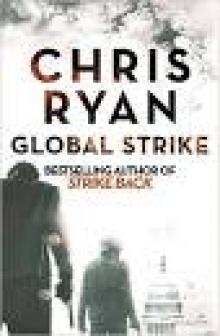 Global Strike
Global Strike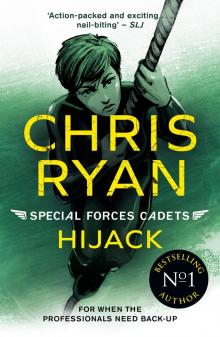 Hijack
Hijack Special Forces Cadets 2
Special Forces Cadets 2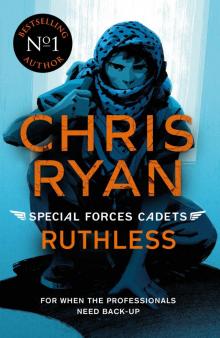 Ruthless
Ruthless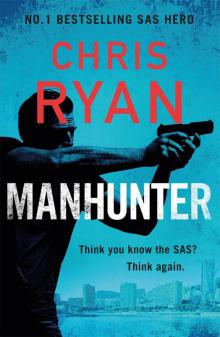 Manhunter
Manhunter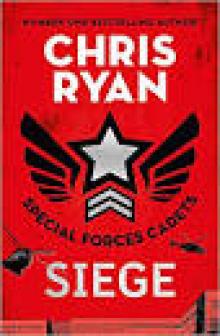 Special Forces Cadets 1
Special Forces Cadets 1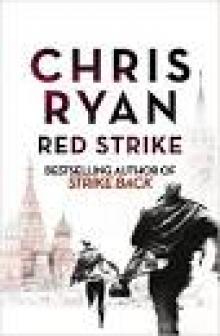 Red Strike
Red Strike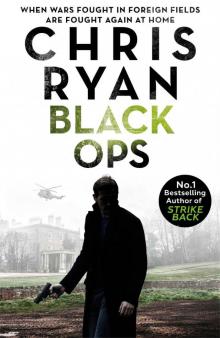 Black Ops
Black Ops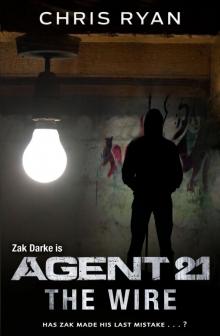 Agent 21: The Wire
Agent 21: The Wire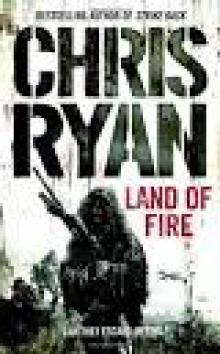 Land of Fire
Land of Fire Alpha Force: Fault Line
Alpha Force: Fault Line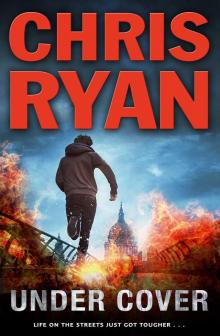 Under Cover (Agent 21)
Under Cover (Agent 21)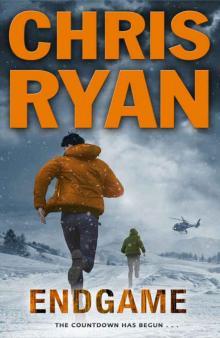 Endgame (Agent 21)
Endgame (Agent 21) Red Centre
Red Centre Blackout
Blackout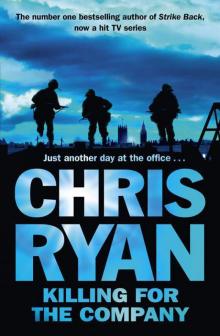 Killing for the Company
Killing for the Company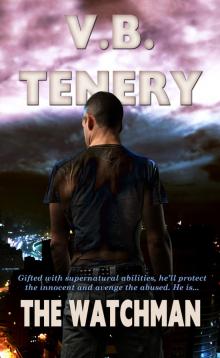 The Watchman
The Watchman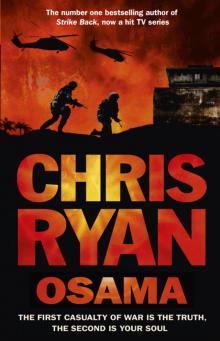 Osama
Osama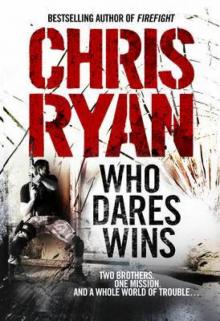 Who Dares Wins
Who Dares Wins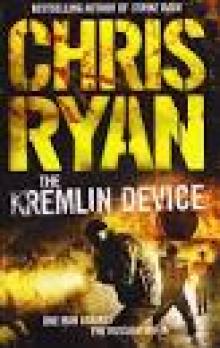 The Kremlin Device
The Kremlin Device Hunter Killer
Hunter Killer Alpha Force: Untouchable
Alpha Force: Untouchable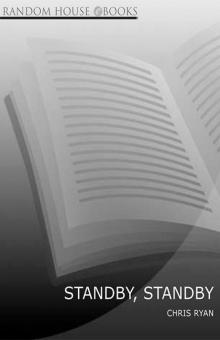 Stand By Stand By
Stand By Stand By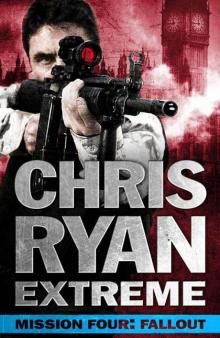 Chris Ryan Extreme: Hard Target: Mission Four: Fallout
Chris Ryan Extreme: Hard Target: Mission Four: Fallout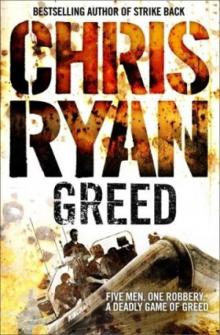 Greed mb-1
Greed mb-1 Alpha Force: Desert Pursuit
Alpha Force: Desert Pursuit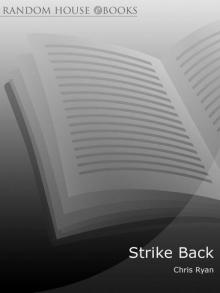 Strike Back
Strike Back Greed
Greed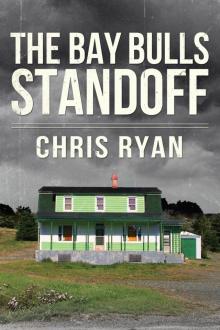 The Bay Bulls Standoff
The Bay Bulls Standoff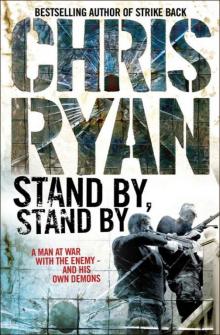 Stand By, Stand By gs-1
Stand By, Stand By gs-1 Outbreak
Outbreak Hunted
Hunted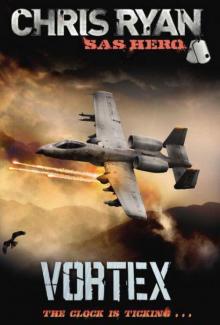 Vortex cr-4
Vortex cr-4 Rat-Catcher
Rat-Catcher Vortex
Vortex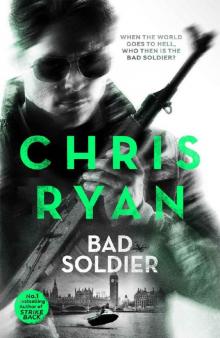 Bad Soldier
Bad Soldier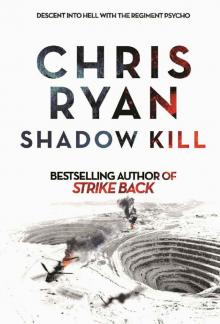 Shadow Kill: A Strikeback Novel
Shadow Kill: A Strikeback Novel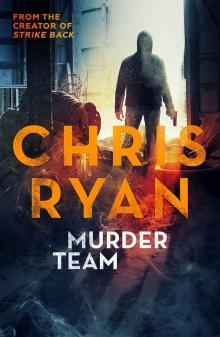 Murder Team (Kindle Single)
Murder Team (Kindle Single) One Good Turn
One Good Turn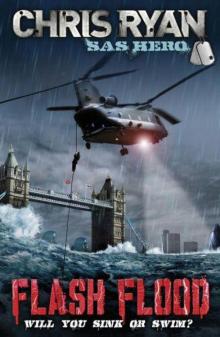 Flash Flood cr-1
Flash Flood cr-1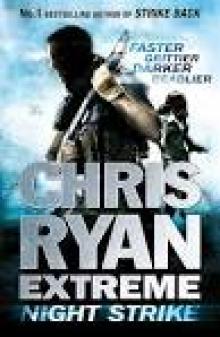 Night Strike
Night Strike Wildfire
Wildfire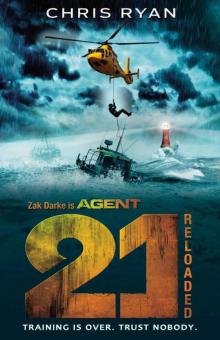 Agent 21: Reloaded: Book 2
Agent 21: Reloaded: Book 2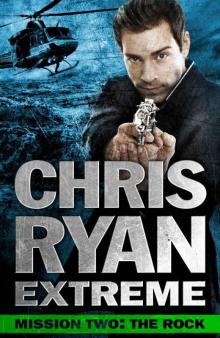 Chris Ryan Extreme: Hard Target: Mission Two: The Rock
Chris Ryan Extreme: Hard Target: Mission Two: The Rock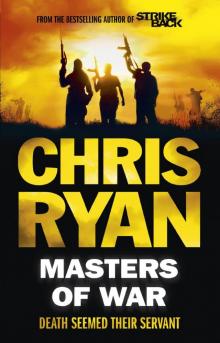 Masters of War
Masters of War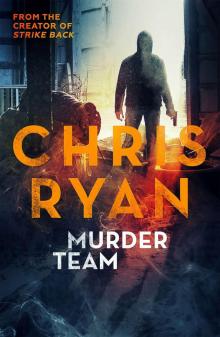 Murder Team
Murder Team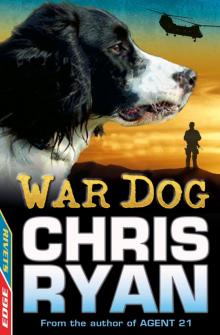 War Dog
War Dog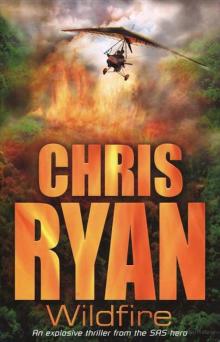 Wildfire cr-2
Wildfire cr-2 Survival
Survival The One That Got Away - Junior edition
The One That Got Away - Junior edition The Hit List
The Hit List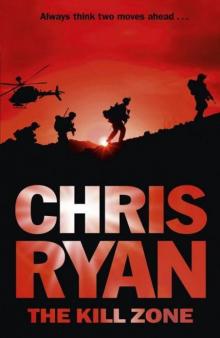 The Kill Zone
The Kill Zone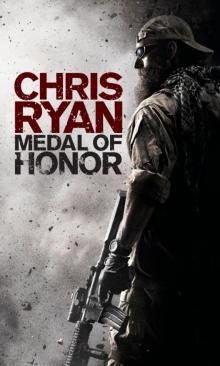 Medal of Honor
Medal of Honor Battleground
Battleground Twister
Twister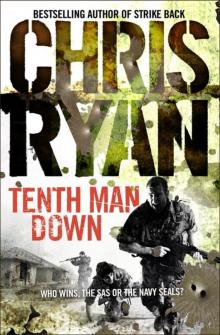 Tenth Man Down gs-4
Tenth Man Down gs-4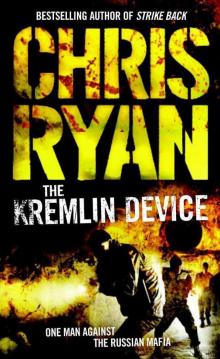 The Kremlin Device gs-3
The Kremlin Device gs-3 Hostage
Hostage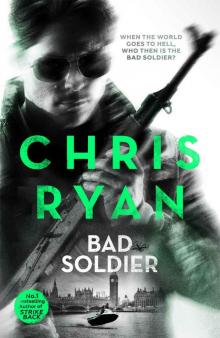 Bad Soldier: Danny Black Thriller 4
Bad Soldier: Danny Black Thriller 4 Alpha Force: Blood Money
Alpha Force: Blood Money Firefight
Firefight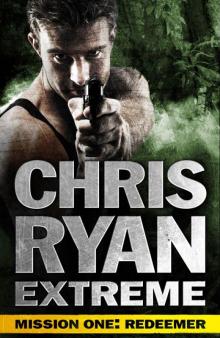 Chris Ryan Extreme: Hard Target: Mission One: Redeemer
Chris Ryan Extreme: Hard Target: Mission One: Redeemer Hit List
Hit List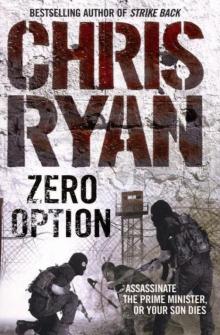 Zero Option gs-2
Zero Option gs-2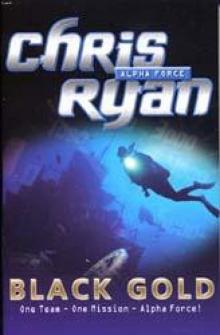 Black Gold
Black Gold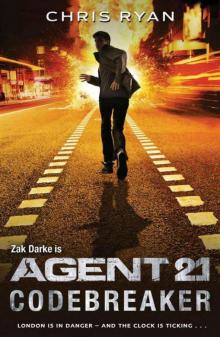 Agent 21: Codebreaker: Book 3
Agent 21: Codebreaker: Book 3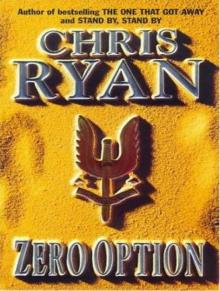 Zero Option
Zero Option Ultimate Weapon
Ultimate Weapon Tenth Man Down
Tenth Man Down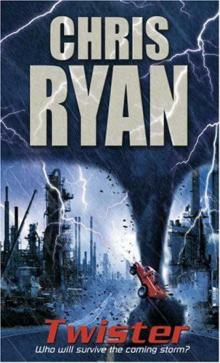 Twister cr-5
Twister cr-5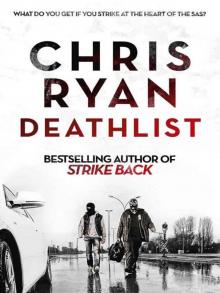 Deathlist
Deathlist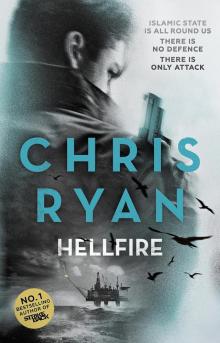 Hellfire
Hellfire Flash Flood
Flash Flood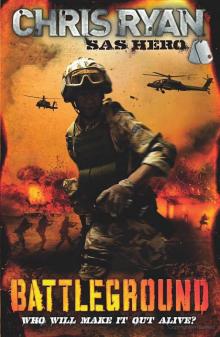 Battleground cr-6
Battleground cr-6 The Increment
The Increment